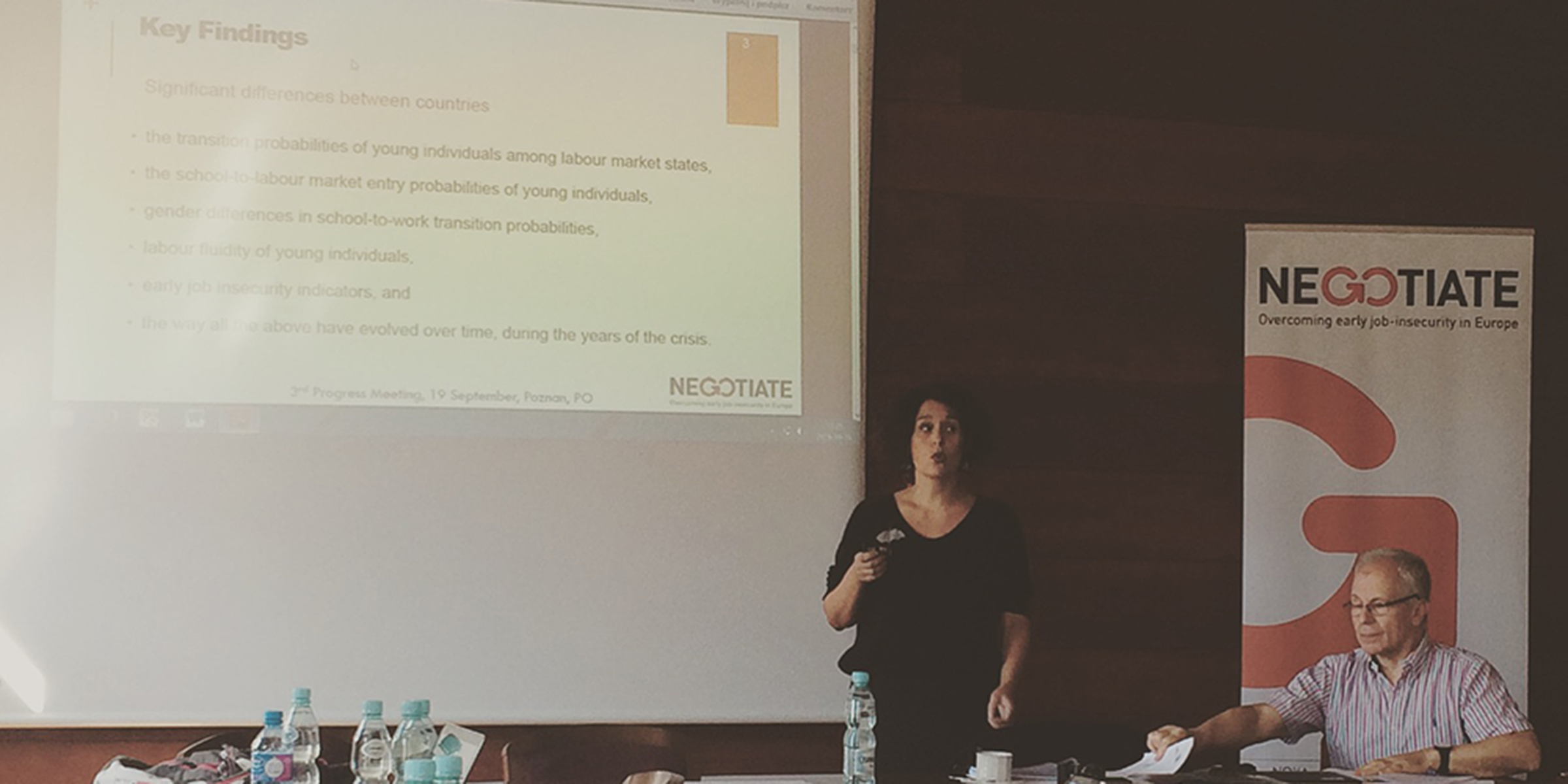The role of economic crisis in determining the degree of early job insecurity in Europe is topic of the working paper 3.3 developed by researchers of Panteion University of Social and Political Science from Greece.
Maria Karamessini, Maria Symeonaki and Glykeria Stamatopoulou look at the dynamics of early job insecurity before and during the recent economic crisis. The transition probabilities between labour market states, and part time-full time employment are measured. The research provides data that compares the situation of young people when entering job market-their transition from education to employment, and compares the gender differences. There is an evidence that show changes between 2008 and 2015 in early job insecurity indices.
Since the outbreak of the crisis in Croatia, Greece, Cyprus, Italy, Spain and Czech Republic the probability of loosing job and becoming unemployed has increased significantly. Only the situation of youth in Luxembourg and Switzerland has improved in this regard. The probability of finding job has also decreased in the same countries, as well as in Romania, Slovakia, and Sweden.
The drawn conclusion from the research is that in majority of countries, young individuals are less likely to exit unemployment. At the same time, have lower chances of finding a job when they are unemployed in comparison with the chances that they had before the beginning of the crisis.
Read more https://negotiate-research.eu/files/2015/04/NEGOTIATE-working-paper-D3.3.pdf (pdf)
